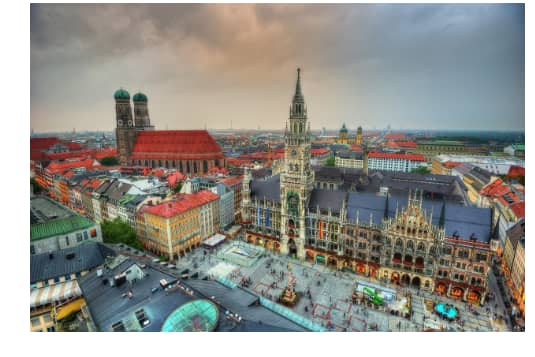Germany Enters Recessions as Inflation Takes its Toll on the Economy
Germany, Europe’s largest economy, has recently faced the harsh reality of falling into a recession due to a higher-than-expected inflation rate. Official data revealed that the country’s output declined by 0.3% in the first quarter of this year, following a 0.5% contraction at the end of 2022. The downgrade of Germany’s previous estimate of zero growth in gross domestic product compared to the previous quarter marks a significant setback for the government, which had recently increased its growth forecast for the year. However, there is a glimmer of hope as more recent data suggests a potential rebound in the near future.
The Impact of Inflation:
Germany’s fall into recession can be attributed to the adverse effects of inflation. The high inflation rate has had a more severe impact on the country’s economy than initially anticipated. The Federal Statistical Office, responsible for monitoring economic indicators, confirmed the recession, which is defined as two consecutive quarters of declining output. This downturn poses challenges for the German government, as it had recently raised its growth forecast for the year after avoiding a feared winter energy crisis.
Government’s Revised Growth Forecast:
In light of the unexpected recession, the German government may need to reassess its growth forecast for the year. Just last month, they had doubled their growth prediction, anticipating a 0.4% expansion in gross domestic product, up from the previous estimate of 0.2%. However, the current economic situation calls for a potential downward revision of this forecast. Adjustments will be necessary to align expectations with the reality of the recession and its implications for Germany’s overall economic performance.
Hope for a Swift Recovery:
Despite the challenging economic conditions, there are signs that the recession in Germany may be short-lived. Timelier data from the Purchasing Managers’ Index (PMI) survey indicates that business activity in the country expanded in May, despite a significant downturn in manufacturing. This positive development suggests that the economy has the potential to rebound and recover from the recessionary period. However, it remains crucial to monitor future economic indicators to assess the duration and depth of the recession, as well as the effectiveness of any potential recovery measures.
Conclusion:
Germany’s descent into recession following higher-than-expected inflation rates has raised concerns about the country’s economic stability. The government’s optimistic growth forecast for the year may need to be revised downward to reflect the current situation accurately. However, recent data showing business activity expansion in May provides a glimmer of hope for a swift recovery. It is imperative for policymakers and economists to closely monitor the situation, adapt strategies, and implement appropriate measures to facilitate Germany’s economic revival and mitigate the impact of the recession on its citizens and business.






